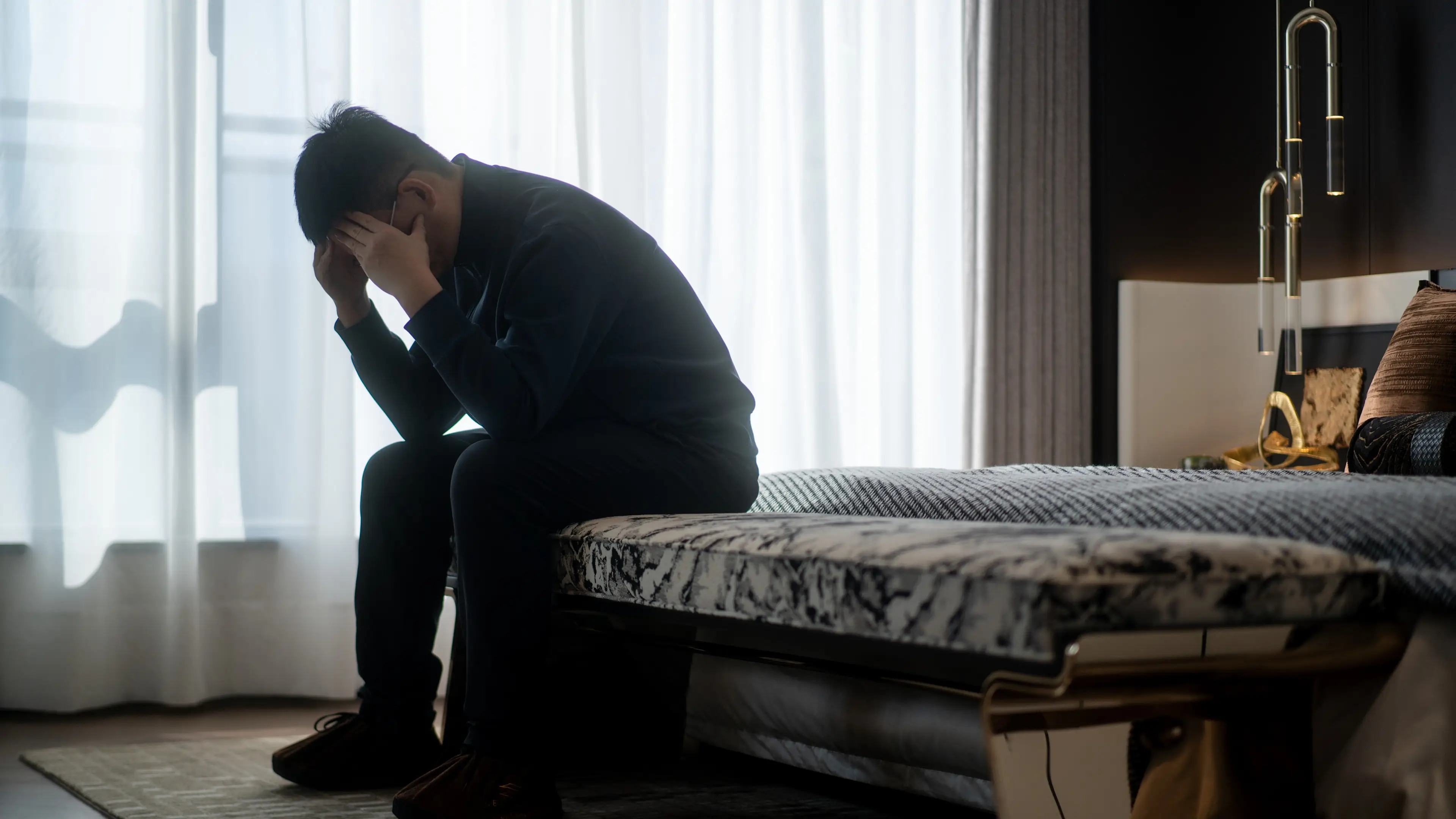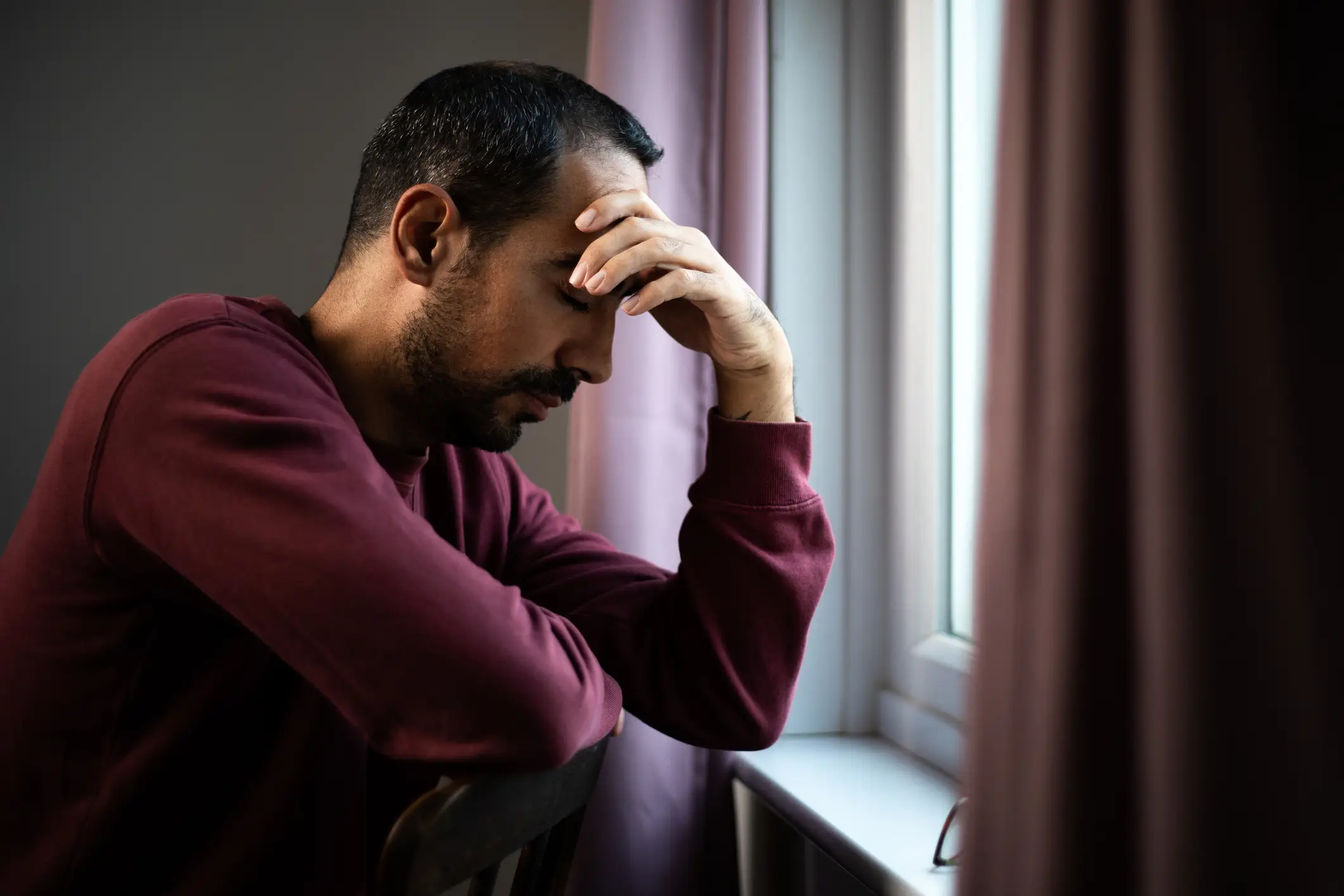
We've all heard of the dreaded 'M word', but did you know there's actually a male equivalent?
That's right - around the same life stage, some men experience a similar phenomenon known as andropause, which is more commonly referred to as 'male menopause' or 'manopause'.
Now, before we get into what it is, it's important to note that it's of course not a direct equivalent to the menopause; it's a lot more subtle, and it doesn't affect all men.
Menopause is when your periods stop due to lower hormone levels and it usually affects women between the ages of 45 and 55, however it can happen earlier. Both the mental and physical symptoms can have a big impact on your daily life, including relationships, social life, family life, and work.
Advert
Hormone changes are a natural part of aging, however, they affect men and women differently - here is everything you need to know about the so-called 'male menopause'.

What is the 'manopause'?
As per the NHS, some men develop depression, loss of sex drive, erectile dysfunction, and other physical and emotional symptoms when they reach their late 40s to early 50s. While the timing overlaps with the menopause in women, the symptoms are actually not the result of a sudden drop in testosterone in middle age, like the name may suggest.
Although testosterone levels fall as men age, the decline is steady at about 1% a year from around the age of 30 to 40, and this is unlikely to cause any problems in itself.
A testosterone deficiency that develops later in life, also known as late-onset hypogonadism, can sometimes be the cause of symptoms, but in many cases they actually have nothing to do with hormones.
For a diagnosis of this, you need a testosterone level below 300 nanograms per deciliter and associated symptoms of testosterone deficiency.
The science behind the phenomenon is that Leydig cells in the testes utilise cholesterol to produce testosterone - the primary male sex hormone.

Leydig cell function declines with age, which causes a slow decrease in testosterone levels, usually starting around age 30. If you don't have hypogonadism, lifestyle factors, psychological problems, or a 'mid-life crisis' could still be playing a part in your symptoms around this age.
Recalling his own experience, coaching psychologist James Davis told the New York Post: “It was actually my wife, Claire, that noticed I was becoming more withdrawn, that I was struggling more than normal to focus, that I was lacking get-up-and-go,
“I checked in with myself and actually I realised I felt low, a little apathetic, like life had gone a bit flat and that I was struggling for motivation and direction with work."
Dr. William T. Berg, an assistant professor of urology at Stony Brook Medicine, told the publication 'andropause' is simply a 'convenient term to use' as we're already familiar with the menopause.
“Generally, [it’s] the age-related decline in serum testosterone levels associated with clinical symptoms such as fatigue, decreased libido, concentration issues, depressed mood, poor sleep," he explained.

What are the red flags of 'manopause'?
The NHS website outlines that symptoms common among men in this age group include:
- Mood swings and irritability
- Loss of muscle mass and reduced ability to exercise
- Fat redistribution, such as developing a large belly or 'man boobs'
- A general lack of enthusiasm or energy
- Difficulty sleeping or increased tiredness
- Poor concentration and short-term memory
If you do have hypogonadism - testosterone deficiency - these are some red flags to look out for.
Israel Cassol, 44, another case study who spoke to The Post, said he started to notice a series of symptoms in his late 30s. These were: fatigue, difficulty sleeping, a dip in mood, changes in sexual health and a gradual loss of muscle tone and strength.
If you experience these symptoms, book an appointment with your GP and they may request a blood test to measure your testosterone levels.
If the results suggest you have a testosterone deficiency, you may be offered testosterone replacement in the form of an injection or gel to correct the hormone deficiency, which should relieve your symptoms.
Topics: Health, Life, Menopause, Mental Health